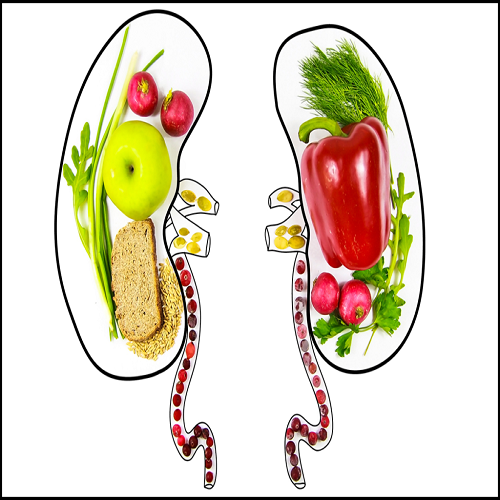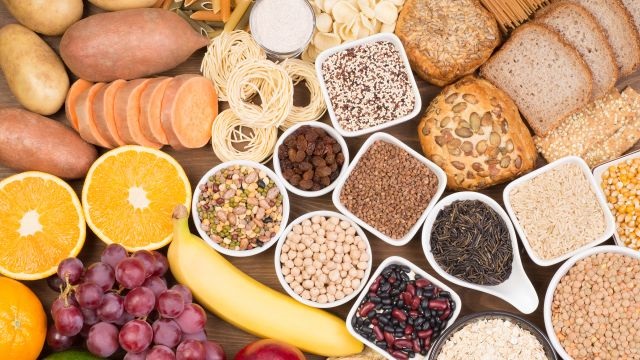Vegetarian Super Foods


A vegetarian diet full of nutrient-dense superfoods can be very helpful in supporting the kidneys, which are important organs for general health. It is critical to locate plant-based meals that offer the best nutrition for kidney health as more people choose vegetarian lifestyles.
16 Best Vegetarian Super Foods For Kidney Health
Your body’s filter for removing toxins and liquids is your kidneys, which also control blood pressure and keep you healthy. There are a few vegetarian superfoods that we must consume regularly if we want to improve kidney health.

1. Cauliflower
Cauliflower, another cruciferous vegetable, is high in vitamin C and a rich source of fiber and folate. It also contains a ton of indoles, glucosinolates, and thiocyanate chemicals, which aid the liver and kidney in removing toxins that can harm DNA and cell membranes.

2. Red Bell Pepper
Due to their low potassium content, red bell peppers benefit kidney health. Along with providing the dish with vitamins C, B6, and A, folic acid, and fiber, they also give it color and flavor. Lycopene, an anti-oxidant found in red bell peppers, can help prevent some cancers.

3. Onion
While onion breath may be unappealing, onions support healthy kidney function. They have flavonoids and quercetin, which stop fatty material from settling in the blood arteries. They also include chromium, which aids in the metabolism of proteins, carbs, and lipids.

4. Olive Oil
Using extra virgin olive oil can provide even more antioxidants to your favorite recipe because it is a monounsaturated lipid with anti-inflammatory qualities that remain stable at high cooking temperatures.

5. Cabbage
A green vegetable that is rich in phytochemicals is cabbage. Its antioxidants work to scavenge the body’s dangerous free radicals, lowering the risk of renal failure, cardiovascular disease, and cancer.

6. Garlic
When you suffer from kidney problems, it is beneficial to avoid salt. Garlic can give you the flavor you crave by using garlic powder instead of salt in recipes, plus it adds a great dose of vitamin C and B6.

7. Arugula
Arugula is a green leafy vegetable that is rich in antioxidants and other minerals. It is a particularly wise choice because it has a low potassium content, which is healthy for your kidneys and lowers blood pressure.

8. Macadamia Nuts
Macadamia nuts are an exception to the rule that most nuts shouldn’t be consumed by those with kidney problems. They also contain B vitamins and good lipids.

9. Shiitake Mushrooms
Shiitake mushrooms are a fantastic source of plant-based protein and a perfect diet for people with kidney problems. Given their lower potassium content compared to white buttons and portobello mushrooms, they are preferable.

10. Radishes
Radishes are a fantastic source of vitamin C and may be used in place of salt in a variety of meals. These veggies also include antioxidants, which lower the risk of heart disease in individuals.

11. Apple
It’s a tasty fruit that’s high in fiber, vitamins, and minerals. Apples’ anti-inflammatory and antioxidant characteristics help prevent diabetes, cancer, heart disease, and poor cholesterol. Eating apples can help avoid kidney issues because diabetes and renal failure are closely associated.

12. Blueberries
Low in potassium and high in antioxidants, these sweet berries work as an anti-inflammatory food that just happens to taste delightful.

13. Red Grapes
Grapes’ red color is caused by a chemical compound called flavonoids. These flavonoids contribute to lower blood clot risk. To quench their thirst, patients on a liquid-restricted diet can consume frozen grapes.

14. Strawberries
Strawberries don’t only taste nice; they are perfect. They are low in potassium and high in vitamin C, manganese, and fiber. When your diet is restricted due to health concerns, this natural candy seems like a pleasure.

15. Turnips
Turnips are a fantastic substitute for potatoes and winter squash for someone with kidney problems. They may be mashed or roasted to make the ideal side dish, and they are packed with fiber.

16. Almonds
Almonds are a powerhouse of good fats and antioxidants, and their high magnesium content lowers blood pressure, which is essential for preserving kidney function. Almonds are heavy in calories, so be cautious to consume them in moderation.

Note:
It’s significant to remember that every person’s nutritional requirements might change, particularly if renal function is already compromised. Consulting a medical expert, such as a certified dietician, can result in personalized advice and direction tailored to individual needs.



